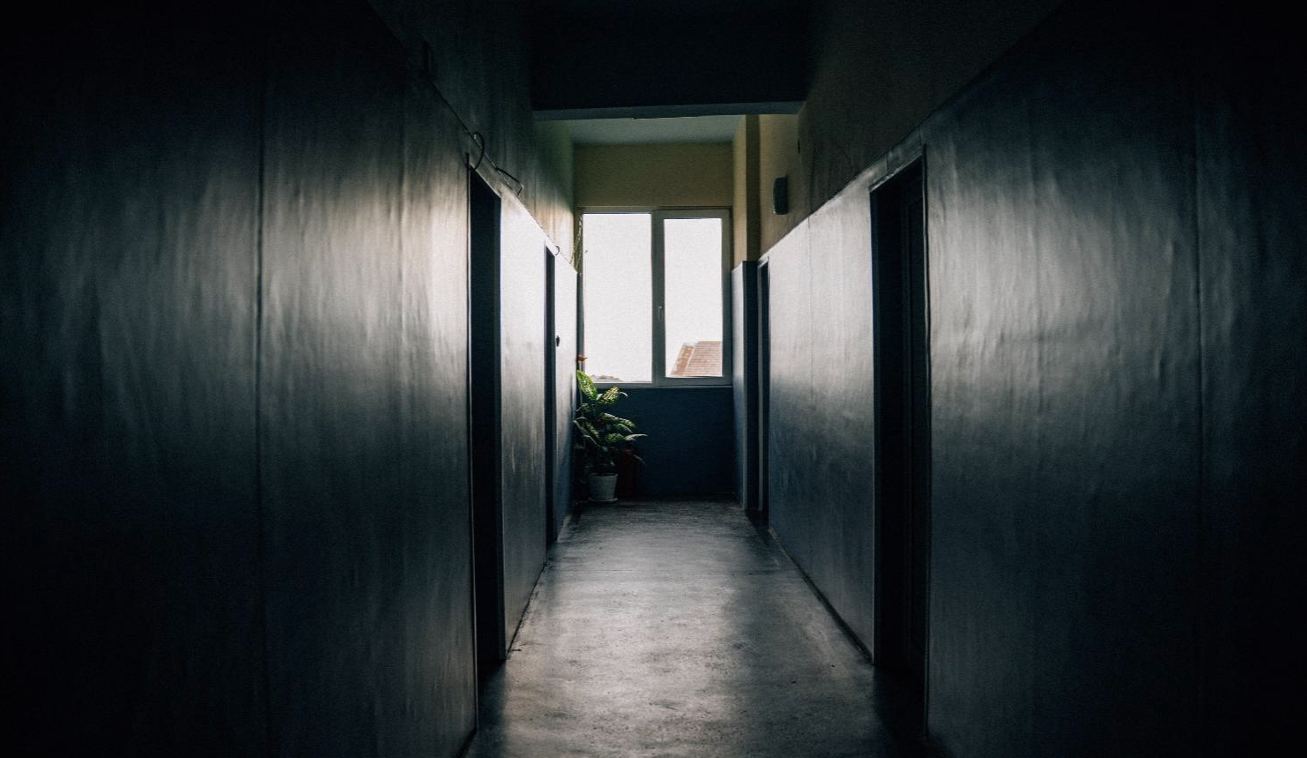In the wake of the terrible killings in Potsdam in Germany on the 28th of April, we reached out to our members in the country to ask them to give their thoughts on what happened and what can be done to prevent such horrors from happening again in the future. The basic summary of what happened on that day is that a long time care worker at the Oberlinhaus in Potsdam, run by the Lutheran Church, murdered four disabled people and injured a fifth before being arrested later that evening. What follows is a statement from our members at Rhein-Main Inklusiv regarding the horrific events that took place in Potsdam.
“The Oberlinhaus in Potsdam-Babelsberg is an institution motivated by Christian faith, which in its own words is committed to participation, health, education, and labour in the Berlin-Brandenburg region. In Potsdam, the Oberlinhaus is the third largest employer. Further locations are in Berlin, Bad Belzig, Michendorf, Werder (Havel), Kleinmachnow and Wolfsburg.
In addition to integrative offers on health and education for people at different stages of development, the Oberlinhaus also provides offers in terms of promotion, assistance, and special forms of housing. Thus, 46 adults with physical and/or mental disabilities live in the Thusnelda-von-Saldern-Haus on the premises independently with assistance and comprehensive accompanying offers. These include the support of social educators, nurses and social workers, who according to the Oberlinhaus are trained to “counter possible tensions between clients”. Furthermore, it is said that as a professional partner, they work together on an equal footing with clients and their families.
On paper, the concept of the institution, which has been in place since 2007, reads very promisingly and is genuinely concerned with the interests of people with disabilities – an approach that we as an association are fundamentally not opposed to. This makes it all the more frightening for us to see the act that took place on 28 April 2021 in this very institution.
On that Wednesday evening, four residents of the Thusnelda-von-Saldern-Haus, aged 31 to 56, two of whom have lived in the Oberlinhaus since childhood, are allegedly violently killed by a long-time employee and the mother of a child with disability. The alleged perpetrator then drives to her home, several kilometers away, and confesses the crime to her husband. Only then the police are called. Prior to the crime, the suspect showed no behaviour of concern, according to previous reports. According to the latest findings, the investigators assume a deliberate course of events. At the same time, however, there are currently doubts as to the complete capacity of guilt, which is why the suspect is currently in a psychiatric hospital. To this day, no motive for the crime is known.
We assume that the judiciary will be able to carry out and judge the course of events with sufficient time and resources. Forensics will also be able to at least narrow down the motive over time. But do these two sections of our society end the debate about this crime? Shouldn’t the deaths of the four victims be cause for real change?
In the first days after the crime, there was extensive coverage of these in particular regionally, but there were also reports in print and digital media throughout Germany, as well as in public and private television. The focus of these reports was, of course, the shock of the act, but at the same time little sympathy for the victims. Instead, the focus is swiftly on the suspect and the motive for the crime. It is not uncommon to rush to the conclusion that the act would have been carried out in the affect by overloading at work. It is a dangerous statement, because it suggests the possibility that the victims may have contributed to their deaths. The motive of salvation is also openly considered and discussed, but does this not initiate the same ideas as in times of applied euthanasia when people with disabilities were reduced to a monetary value? No man may occupy another with a value, regardless of given qualities. All in all, the large-scale reporting of the crime also gives the impression that one wants to bring it to a swift conclusion and make it disappear into oblivion as an unavoidable misfortune. A procedure that is often used in scandals in the tabloid press, but which does not demonstrate human dignity.
On the other hand, the question of prevention is hold strongly in the background. A question that also avoids the Oberlinhaus. It is kept silent in the deepest sorrow, services are held and extensive work is done with chaplains. However, one only wonders why the victims had to die, but not how the act could have been prevented in concrete terms – although, in our view, the Oberlinhaus clearly has a responsibility to explain itself in terms of avoiding and preventing violence within its own institution.
A spokeswoman for the facility said all staff would attend regular supervision and team meetings. Just 24 hours before the crime, the Thusnelda-von-Saldern-Haus was visited by the Ministry of Health as part of an annual rule monitoring and the topics “Handling special stress during the Corona Pandemic, Violence in Care” were also addressed. No incidents were reported, according to a spokesman for the state health ministry. It is unclear under what circumstances and conditions the review took place. The value and usefulness of such reviews in the manner currently under way should also be called into question, in our view. The killing of four people in this helpless constellation cannot be interpreted as misfortune or affect. Both the Oberlinhaus and the Federal Government have completely failed in their responsibility to vulnerable people in their own country, and we think that dialogue and discourse for meaningful solutions to prevent acts of violence against vulnerable people give more importance to the handling of the event, rather than being silent about it.
The voices from within our own ranks are clearer here. On 5 May, the European Day of Protest on the equality of people with disabilities, the act was brought to the attention of the public on a large scale via social media. For example, Raul Krauthausen, an activist for inclusion and accessibility, draws attention more than once to the long-standing structural position of power of special institutions. The advocacy group Self-Determined Life in Germany (ISL) also criticizes the handling of the incident, in particular the devaluation of the victims, by taking the perpetrator’s perspective and thus relativizing the act. Ottmar Miles-Paul, activist and editor at kobinet.de, pleads at the Ecumenical Church Congress on May 16 to look at – and finally to ensure real inclusion.
Overall, we believe that, apart from interest groups for vulnerable people, the issue of violence in care facilities and violence against vulnerable people in general is far too rarely discussed, counseled and supported. In general, far too little is said and reported about the Accessibility Strengthening Act in development. Accordingly, there is also a lack of information on this in the independent, but in particular the mandatory deliberations by state institutions.
In Article 16 of the UN Convention on the Rights of Persons with Disabilities, signed and ratified by Germany since 2008, all signatories undertook to take all appropriate measures to protect people with disabilities from all forms of violence, exploitation, and abuse. The violent crime committed in Potsdam is indescribably cruel and shows once again that even in Germany, people with disabilities cannot even live in assurance of the basic human need for integrity in an institution, for which is claimed to be a great asset for these people by the government.
Violent attacks on people with disabilities unfortunately do not occur only in isolated cases. For example, a representative study commissioned in 2012 by the Federal Ministry of Family Affairs found that women with disabilities are two to three times more likely to experience sexualized violence in childhood and adolescence than women on average in the population. In adulthood, they are almost twice as likely to be affected by physical violence. It can be assumed that there is also likely to be a high estimated number of unknown cases among men with disabilities experiencing physical violence. Furthermore, people with disabilities were abused for years at the Wittekindshof Foundation in Bad Oyenhausen. These violent acts are made possible to a large extent only by the closed worlds of institutions.
With every motive and judgment, there is still a circumstance in the room that is little to no topic of non-disabled people: a person who receives his livelihood for the care of people with disabilities, who are at the same time at the mercy of that person, takes advantage of his physical superiority over the helpless people and takes four of them’s lives. In this context, as a person with a disability, one has to worry about the current infrastructure in terms of care and safety, to be able to live an independent life in safety at all.
If world history shows one thing over and over again, it is this: the tabooing of serious problems in society leads to nothing more than suffering. The act in the Oberlinhaus must not be regarded as an unfortunate individual case. Reality shows that vulnerable people are regularly victims of violence and abuse, but they are far too rarely given a voice, because the way in which those institutions are treated is based on the exercise of power and profit, rather than on the appreciative treatment of each other. Crimes of this kind exist in Germany, in Europe, in the world – and the taboo behind it must be broken.
In our view, the act could occasionally, but not conclusively, have been prevented if there were not so many issues in the care sector in the German health system, such as personal shortages and too low wages to make the profession interesting at all. Furthermore, the poor work of the failed attempt to hyperindustrialise the care sector is perceived by all groups of people involved, apart from board positions in institutions, as a serious problem that does not allow quality in a profession that lives on quality. These are all points that the German health system, in our opinion, urgently needs to be addressed, discussed, and improved upon for vulnerable people. Similarly, our appeal goes to the EU and the whole world, as the current pandemic clearly shows that there is an urgent need for improvement and action in the area of health and care throughout the world. A baby step in the right direction is the strengthening of the protection of violence in the Housing Sharing Act Berlin. However, this small beginning must not end up as a drop in the ocean.
The implementation of the signed and ratified UN Convention on the Rights of Persons with Disabilities must be further monitored and severely sanctioned in the event of a filling. Finally, the question arises for us why there are still so many people with disabilities, who are not offered or trusted to live an independent life in the form of assistance and therefore still must live in an institutional structure. Countries such as Sweden are a rare exception in terms of disability policy. In Article 19, the UN Convention on the Rights of Persons with Disabilities obliges Germany to deinstitutionalise: support services out of institutions for all persons with disabilities, beyond the nature and severity of the impairment, must be expanded upon and large patient housing facilities must be gradually dismantled.
As an association alone, we have no opportunity to influence the further course of the tragic events. However, at all times we offer a dialogue with politicians, both nationally and internationally, in order to break current taboos and we think that we are not alone in this offer.
We remember the victims Martina W. (1990-2021) I Christian S. (1985-2021) I Lucille H. (1978-2021) I Andreas K. (1964-2021) and wish the bereaved a lot of strength for the coming time.”


